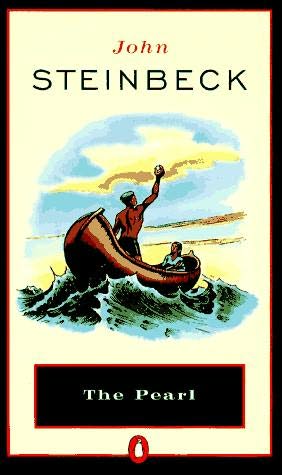The Pearl, by John Steinbeck, evil transforms certain humble citizens into envious savages. Evil was exhibited by the doctor who refused to treat Coyotito because his parents had no money. When the doctor heard of Kino and Juana’s fortune in finding “the pearl of the world” (722), he boasted that they were patients of his while thinking of a better life for himself in Paris.
Coyotito was healed when the doctor finally came to their straw hut. He deceived Kino by giving the baby a white powder that made him go into convulsions. An hour later he came and gave Coyotito the remedy and immediately wanted to know when he was getting paid.
The evil in the pearl had reached the heart of the doctor. The pearl’s evil did not restrict itself to infecting Kino’s peers; it also affected Kino himself. He wanted to sell the pearl and use the money to better his family’s standard of living.
He had dreams and goals that all depended on the pearl. When Juana wanted to destroy the pearl, Kino beat her unmercifully: He struck her in the face and she fell among the boulders, and he kicked her in the side…He hissed at her like a snake and she stared at him with wide unfrightened eyes, like a sheep before a butcher. (742)
Juana saw through the outer beauty of the pearl and knew it would destroy them, but Kino’s vision was blurred by the possible prosperity the pearl brought. The malignant evil then spread to a secret cult known only as the trackers. This corrupt band of ruffians attacked and destroyed Kino’s life.
The very night that the trackers learned of Kino’s pearl, they tried to steal it. The next night, Kino was attacked twice, which resulted in Kino committing murder. After the final struggle of the night, Juana went back to their home to find more baneful members of the heartless cult rampaging through their belongings to find the pearl.
The end result was Kino and Juana’s house going up in flames. The trackers then committed the cardinal sin, they destroyed Kino’s canoe: This was an evil beyond thinking. The killing of a man was not so evil as the killing of a boat. For a boat does not have sons, and a boat cannot protect itself, and a wounded boat does not heal. (744)
The trackers annihilated the most important material possession that any citizen of the community owned, “…for a man with a boat can guarantee a woman that she will eat something. It was the bulwark against starvation” (717). The evil invaded Kino’s life and everyone who knew of it.


good effort